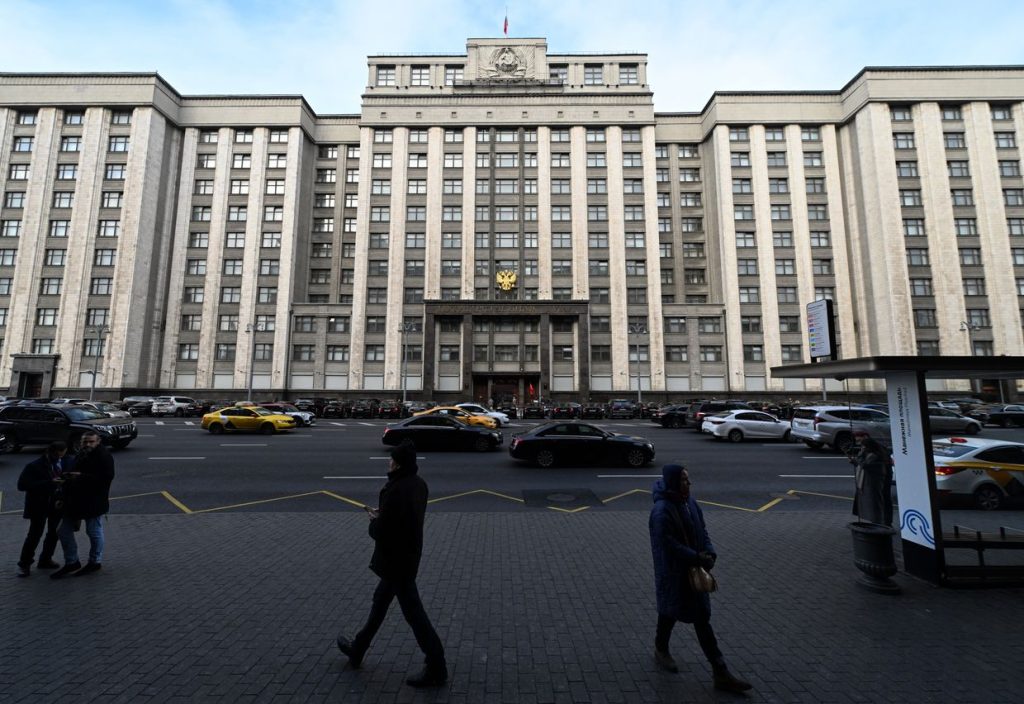The Washington Post reported on April 8 that Russia is trying to undermine U.S. support for Ukraine through a disinformation campaign. This campaign is part of a 10-year Kremlin strategy to elevate the voices of populist, anti-establishment politicians opposed to the U.S. global role. Russian political strategists and trolls have been creating fake news articles, social media posts, and comments to promote American isolationism and stir fear over U.S. border security and economic tensions. One of the tactics used instructs Russian trolls to post comments in the name of American residents, criticizing President Joe Biden’s policies and opposing military aid to Ukraine in favor of prioritizing border security.
The Russian disinformation campaign also targets Ukraine’s President Volodymyr Zelensky, accusing him of corruption. The campaign aims to portray “white Americans” as the principal losers of foreign aid, advocating for the money to be spent on America’s border security instead of supporting Ukraine. The Washington Post noted that Russia has intensified its propaganda operations as a second front, with the disinformation campaign becoming almost as important as the military campaign in Ukraine. Congressional approval for further aid to Ukraine has become critical for Kyiv’s ability to defend itself, making it a target for Russian influence operations.
In a separate incident, the Czech government revealed on March 27 that it had uncovered a Moscow-financed propaganda network aimed at influencing European politics and turning public opinion against aiding Ukraine. The network targeted European elections by spreading disinformation and propaganda. Prague named Viktor Medvedchuk, a Kremlin-linked former Ukrainian oligarch, and Artem Marchevskyi, a media figure, as key figures in the propaganda network. This discovery highlighted the extent of Russian efforts to undermine support for Ukraine on an international scale, showcasing the interconnected nature of disinformation campaigns.
The disinformation campaigns orchestrated by Russia in both the United States and Europe demonstrate a coordinated effort to manipulate public opinion and shape political narratives. By using troll farms, political strategists, and fake social media accounts, Russia aims to sow division, promote isolationism, and weaken support for Ukraine. The Kremlin’s long-term strategy of elevating anti-establishment voices and exploiting existing tensions reflects a sophisticated approach to achieving its geopolitical goals. The revelations of these propaganda networks underscore the importance of countering disinformation and upholding independent journalism to safeguard democratic processes and protect vulnerable nations like Ukraine.
The impact of Russia’s disinformation campaigns goes beyond influencing public opinion; it directly affects the ability of countries like Ukraine to receive crucial support from the international community. By spreading false narratives about corruption, prioritizing border security over foreign aid, and manipulating racial tensions, Russia seeks to erode trust in democratic institutions and cooperation between nations. The exposure of these propaganda networks serves as a wake-up call for governments and media outlets to strengthen their defenses against misinformation and propaganda, highlighting the need for vigilance and transparency in the face of foreign interference.
As Ukraine faces ongoing security challenges and seeks to defend its sovereignty against Russian aggression, the support of the international community, particularly the United States, is essential. By standing united against disinformation and propaganda, countries can help ensure that Ukraine receives the assistance it needs to confront external threats and uphold its democratic values. The revelations of Russian influence operations in the U.S. and Europe underscore the urgency of countering these efforts through a combination of strategic communication, media literacy initiatives, and robust cybersecurity measures. In the fight to defend democracy and protect vulnerable nations like Ukraine, independent journalism plays a crucial role in exposing and combatting foreign interference.


